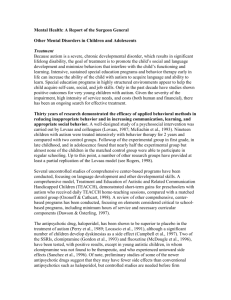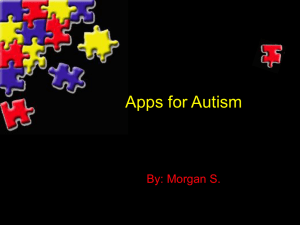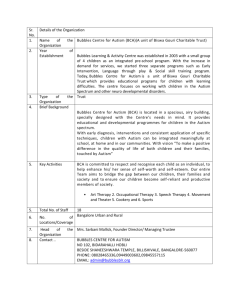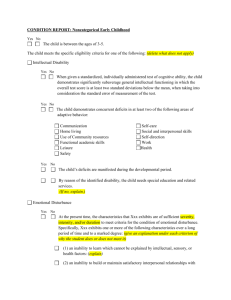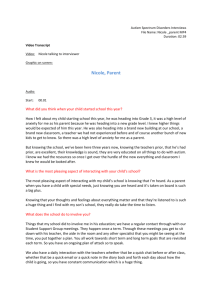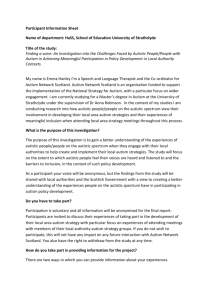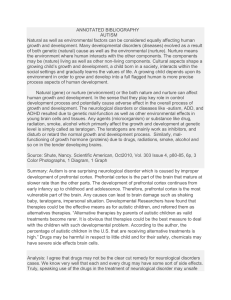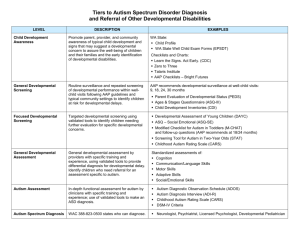Autism - Family & Children Counseling Clinic
advertisement
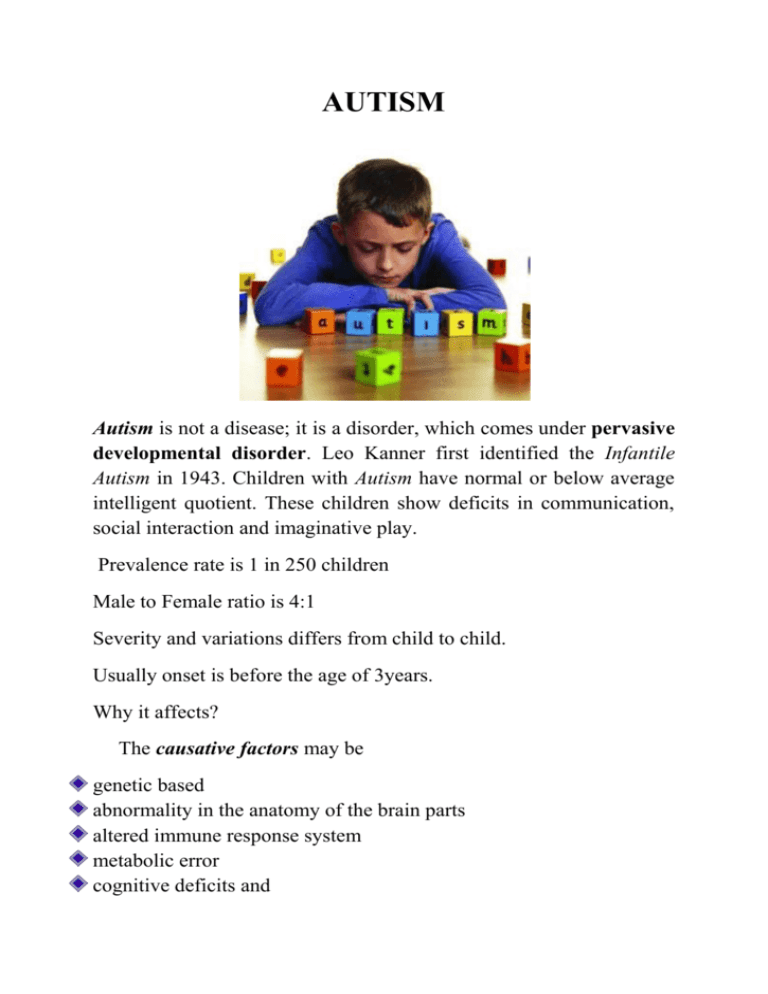
AUTISM Autism is not a disease; it is a disorder, which comes under pervasive developmental disorder. Leo Kanner first identified the Infantile Autism in 1943. Children with Autism have normal or below average intelligent quotient. These children show deficits in communication, social interaction and imaginative play. Prevalence rate is 1 in 250 children Male to Female ratio is 4:1 Severity and variations differs from child to child. Usually onset is before the age of 3years. Why it affects? The causative factors may be genetic based abnormality in the anatomy of the brain parts altered immune response system metabolic error cognitive deficits and psychological function deficits How you identify the Autism? Identification of Autism or behavioral characteristics are - Deficits in social behavior like failure to develop inter-personal relationship extreme aloofness failure to use eye-to-eye gaze failure to smile or show facial expression/body postures lack of normal non-verbal communications trouble in understanding cues no peer friendships in terms of sharing Deficits in speech, language and communication like delay or total lack of development of spoken language failure to respond to the communication of others failure to initiate or sustain the conversation stereotyped or repetitive use of same words or phrases(echolalia) limited interest of words mutism Demand for sameness like an encompassing pre-occupation with restricted patterns of interest attachment to unusual objects compulsive rituals(not accept changes in daily activities) mysterious behavior for small changes in his environment Disturbance of sensory input and cognition impaired imagination and attention difficulty in shifting attention unusual or severely limited activities and interests inability to recognize things seen may fail to respond to loud sound but responds to slow noise mostly enjoys music - unusual taste or interests in unusual smells Disturbance of motility - lack of body aware ness - lack of body control - lack of perceptual control Diagnosis and management need multidisciplinary approach. The specialists from the field of psychiatry, paediatrics, clinical psychology, special education, physiotherapy and speech and language therapy should plan a program to help autistic child. Steps taken to manage Autistic child are Developmental approach that helps to learn to attend, relate, interact, experience feelings and think & relate in an organized and logical manner. Socio-pragmatic developmental approach that helps in use of interactive facilitative strategies, to develop social interaction, spontaneous conversation etc. Play therapy that improves positive social interaction, verbal or nonverbal abilities, imitation, new skills, play routines, give & take habits, etc. Play are symbolic play(phone),pretend play(mother-child, doctor-patient), social play(birthday party, marriage), set songs etc. Behavioral approach like build socially useful repertoires ( please bring pen, water-bottle etc. please keep this book on self), positive reinforcement is beneficial. Vocalization, alternative augmentative communication or picture exchange communicative system are useful in limited speech child. Diet therapy i.e. magnium and B-complex rich diet is advisable. Yoga therapy and music therapy are also improves social skills. Medicinal support also needed in some cases. As the parent of a child with autism the best thing you can do is to start treatment right away. Seek help as soon as you suspect something is wrong. Do not wait to see if your child will catch up later or outgrow the problem. Do not even wait for an official diagnosis. The earlier child with autism get help, the greater their chance of treatment success. Early intervention is the most effective way to speed up your child's development and reduce the symptoms of autism. Parental counseling also helpful to handle an Autistic child in day-to-day management.


